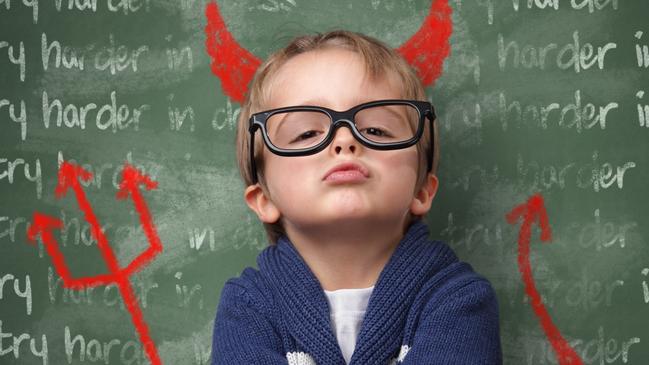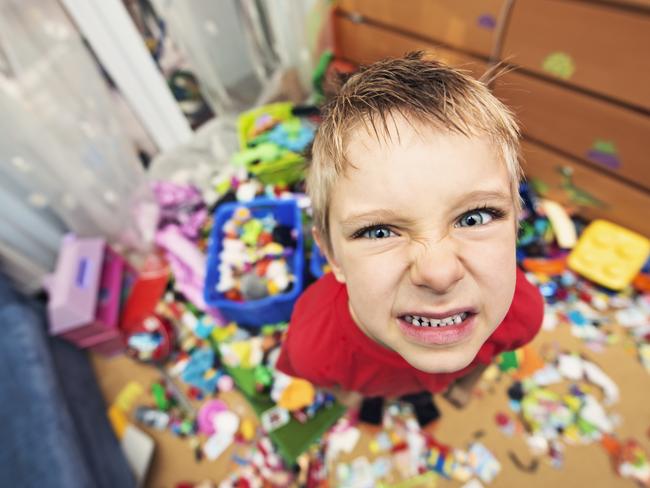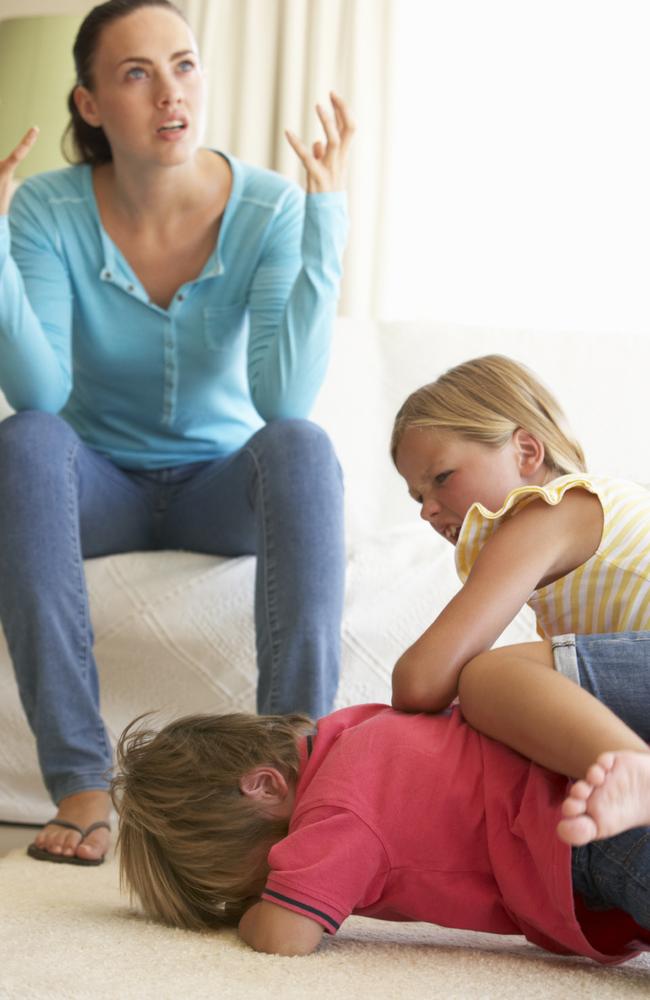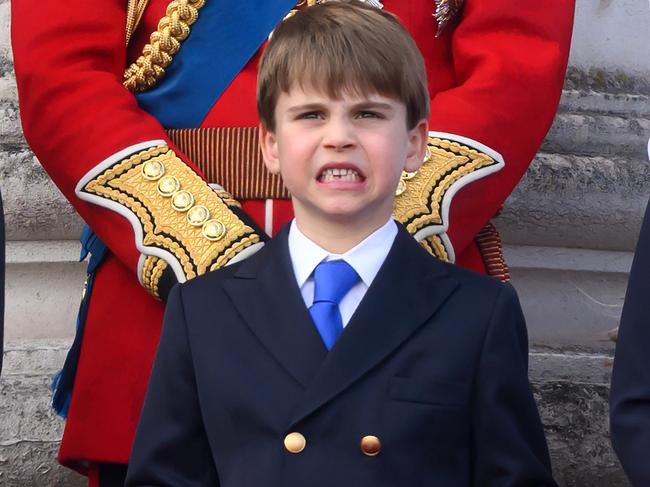Can’t say ‘no’: Why earnest parenting has lost the plot
“Hurry up” makes kids anxious. “I’m proud of you” is out because it focuses on how adults feel. “stop hitting your sister” is out — “gentle hands” are in. The “adultism” parenting trend is out of control.

Opinion
Don't miss out on the headlines from Opinion. Followed categories will be added to My News.
A friend arrives at her daughter’s house to look after her two-year-old grandson Charlie*.
She adores Charlie, has changed her work schedule to look after him one day a week and is thrilled with the close relationship they are building.
But just as her daughter is rushing out to work, my friend spots Charlie trying to jam a xylophone stick into a power socket.
“No, sweetheart,” she says, picking him up and moving him away. “That’s not safe.”
And that’s when her daughter pulls her aside.

“Mum, we’re trying not to say ‘no’ to Charlie,” she tells her.
“Of course, we need him to be safe but we don’t want to dampen his curiosity.”
“So what should I say?” inquires my friend.
“Maybe,” says her daughter, “tell him you understand he is curious and that he might feel disappointed but there are safer ways to play. It’s about naming the feelings.”
Welcome to the era of earnest parenting, a conflict-avoidant, feelings-first approach that is less authoritarian and apparently teaches children to become self-aware.
As a Gen X helicopter parent – currently in remission – I can hardly criticise this new style even if it sounds like marshmallow parenting dusted in therapy-speak.

But I am deeply sceptical of the growing ideology at its core.
In essence, it’s sprung from a new “ism” – adultism – which I’d never heard of until this week.
Just like racism, sexism, ableism or homophobia, adultism is a “big structural problem” according to author Eloise Rickman, author of It’s Not Fair.
“Adultism,” she writes, “refers to the structural discrimination and oppression children face based on their age and status.”
An adultist society, she told The Guardian this week, is one that prioritises adult needs over children’s needs.
It also minimises their abilities.
“A lot of the time, we see children as incompetent and incapable of making decisions for themselves.”
As someone who is still chilled to the bone by my elder daughter running from behind our car in into oncoming traffic, aged three, I stick to the view that children are often incapable of making decisions for themselves.
And yet one day I hope to be a grandparent as wonderful as my own mum, so I’m trying to stay open to this huge shift to child-centred parenting.
ANXIOUS, AND WORDY
I’m also not an expert, just a mum who was unfailingly grateful for my mum’s advice anchored on the twin concepts of love and boundaries.
But this new parenting? It’s so anxious. So wordy.
A simple directive to put their shoes on now comes out as: “I understand you like the feeling of bare feet, I do too, but we will be walking through the supermarket and we don’t want your feet to be run over by a trolley or for you to pick up germs.”
My generation got down eye-to-eye to talk with our kids and we acknowledged their feelings but there was a clarity in our communication.
And there was a power hierarchy that I recognised less as “adultism” and more as common sense.
How do children know that waves can bowl them over or that knives are sharp if parents don’t take command and educate them on the dangers?
Of course children should be encouraged to express themselves and I was never a fan of Super Nanny Jo Frost’s much used “naughty step”.
Prince Louis’ high spirits and cheeky antics, for instance, have shown that parents don’t need to apologise for kids being kids.
But when saying “no” is branded “adultism” and grandparents are being sidelined for being out of step, I wonder if the anxious generation is listening too much to influencers on social media and not enough to their own instincts.

There’s a fantastic TikTok video parodying the intergenerational differences with Millennial mum Taylor Wolfe trying to teach her mum how she’d like her to speak to her children. Instead of telling the children to “be careful” Wolfe instructs her mother to ask “what’s your plan here?”
“Hurry up,” is discouraged because it makes children anxious and “I’m so proud of you” is no longer appropriate because the focus is on how the adult feels. When the grandmother tells her grandson to stop hitting his sister, her daughter interjects: “Don’t say ‘stop’, say ‘gentle hands’”.
You know we’re losing the plot when that sweet little children’s book, The Rainbow Fish, is cancelled. The fish is encouraged to share its shiny scales as a means to friendship but now psychologists say it promotes an unhealthy message of people pleasing. As its detractors argue, it encourages children to give up their uniqueness and boundaries to gain acceptance by others. What next? Alison Lester’s Magic Beach is cancelled because it assumes a privilege that all families can afford to live near the ocean? Or The Very Hungry Caterpillar is not undergoing metamorphosis but is a dangerous proponent of binge eating? What about that negative nelly Eeyore in Winnie-the-Pooh. What if he was actually suffering from depression?
Anyway, I’m sounding adultist. What do you three-year-olds think?
*Not his real name
More Coverage
Originally published as Can’t say ‘no’: Why earnest parenting has lost the plot





